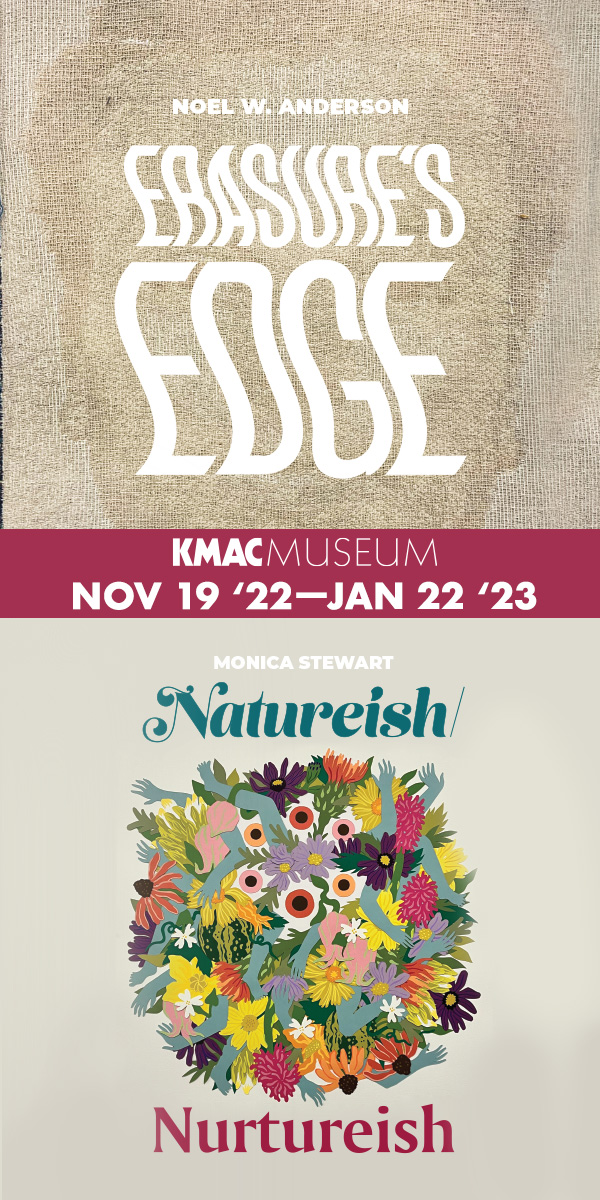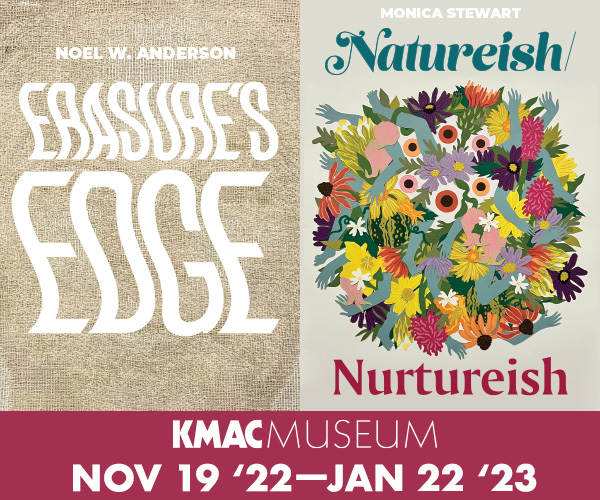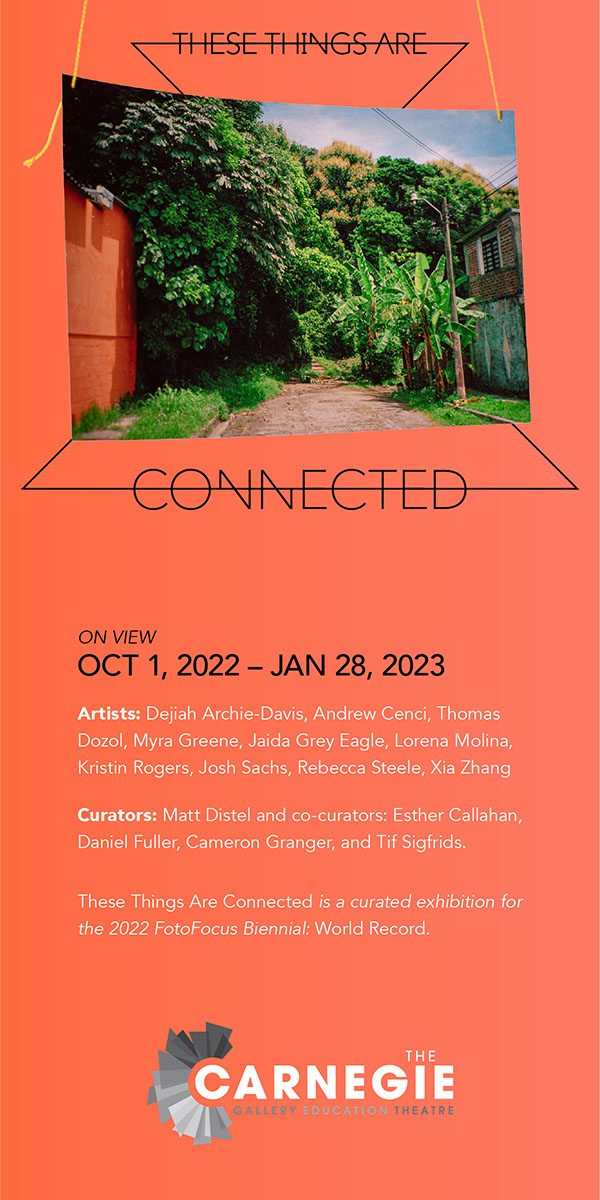You may not be familiar with the tragic love story of Tristan and Isolde, but I would wager that you could conjure up a quote or two from Shakespeare’s Romeo and Juliet, the play that inspired composer and conductor Leonard Bernstein’s West Side Story which catapulted him into the limelight as the music man for all seasons and confirmed his unique sensitivity toward popular culture, philosophy, literature, religion, and the politics of his times.
His 100th birthday (August 25, 1918) is currently being celebrated (until August 25, 2019) by orchestras, singers, and dancers in cities throughout the world, and Lexington, Kentucky has joined the party. In keeping with his genius, Bernstein said: “To achieve great things, two things are needed; a plan, and not quite enough time.†Tempus fugit I thought as I sat in the Singletary Center and listened to the University of Kentucky Symphony Orchestra’s (UKSO) April 20th Season Finale: Bernstein at 100!Â
Maestro John Nardolillo presented a remarkable program showcasing some of Bernstein’s greatest achievements, sharing the stage with five conductors, four choruses, eight soloists, and the UK Jazz Ensemble. Even the audience got in on some of the action. As Nardolillo opened the evening’s tribute with the Overture from Candide, it became clear to all present that “tonight, tonight, won’t be just any night.â€
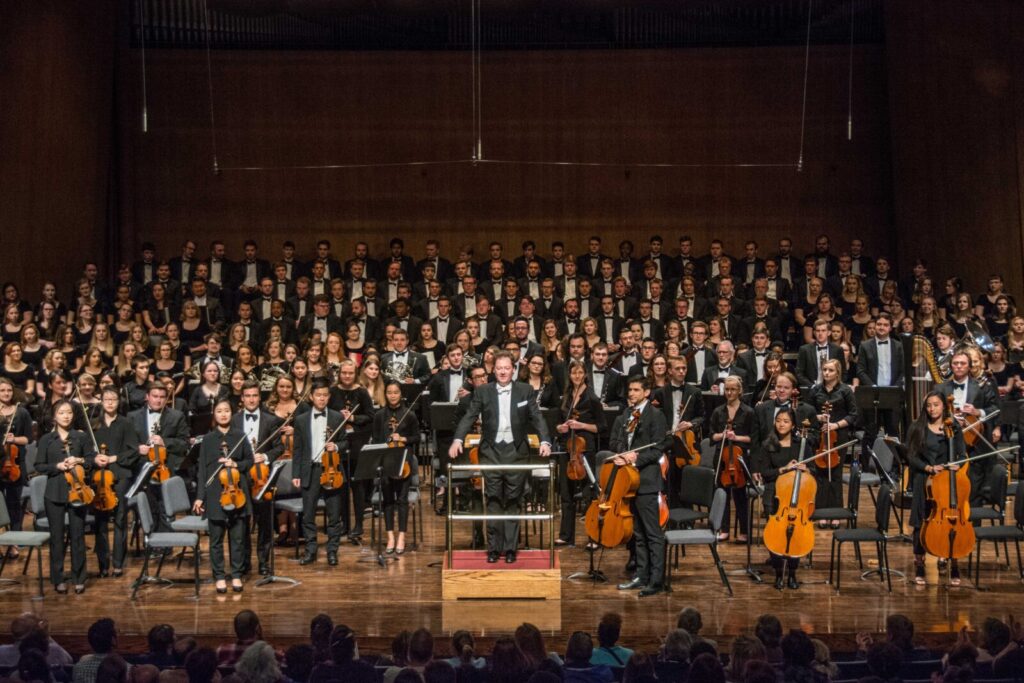
The Candide Overture is the shortest sonata form (ABA) I have ever heard. It commenced (A) with a tremendous burst of frenetic energy initiated by the brass and percussion, and rapidly spread into the strings and woodwinds as if it had gone viral. Then this structured chaos transitioned into a hymn-like movement (B) introduced by the strings and passed on to the other instruments before returning to the more energetic dance-like rhythms established by the horns and timpani at the outset (A). The piece was a single movement less than five minutes long but it packed a wallop, ending with a whimsical whimper and a bang. UKSO’s delivery helped assure its immortality.
Before the performance of the second work, Benediction from Concerto for Orchestra conducted by Sey Ahn, Nardolillo provided some context for what was not originally a part of the Concerto but later became its final movement. Benediction was written in 1986 for the grand reopening of Carnegie Hall where Bernstein had debuted 43 years earlier as a substitute conductor for the New York Philharmonic when he was asked at the last minute to step in for conductor Bruno Walter. The personal prayer he uttered to himself that night before raising his baton became Benediction.
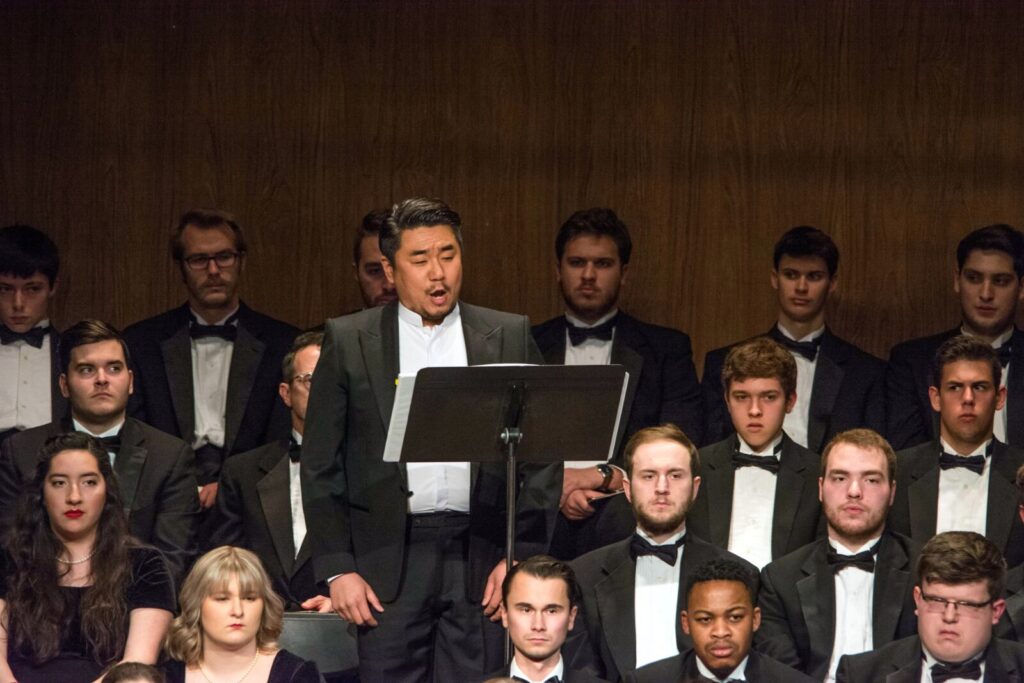
The Benediction began with the brass, sounding at first like a call to arms but then a soulfulness prevailed building steam as it progressed from the oboe to the clarinet and the strings. At the conclusion, baritone Taeeun Moon’s contemplative vocalization of Bernstein’s prayer, in Hebrew, asks God to keep us safe, shower us with his grace and light, and bless us with peace. It seemed like a blessing for the evening’s program as well.
The remaining three works prior to intermission played strongly to Bernstein’s musings on philosophical and religious ideas and texts, with John Nardolillo (UKSO) conducting the Serenade and Three Meditations from Mass, and Jefferson Johnson conducting Cinchester Psalms, sung by four choruses: the UK Choristers (Elizabeth Wilson), the UK Women’s Choir (Lori Hetzel), the UK Chorale and the UK Men’s Chorus (Jefferson Johnson).
Bernstein’s philosophical Serenade, based on Plato’s Symposium, is a lively musical exchange on the subject of love. The conversation began with an eruption of discord and dissonance as all the instruments tried to speak at once. But then guest violinist Daniel Mason (Concertmaster of the Lexington Philharmonic) inserted himself into the squabble and engaged in a dueling duet with the principal cellist as both expressed their views with equal gravity.
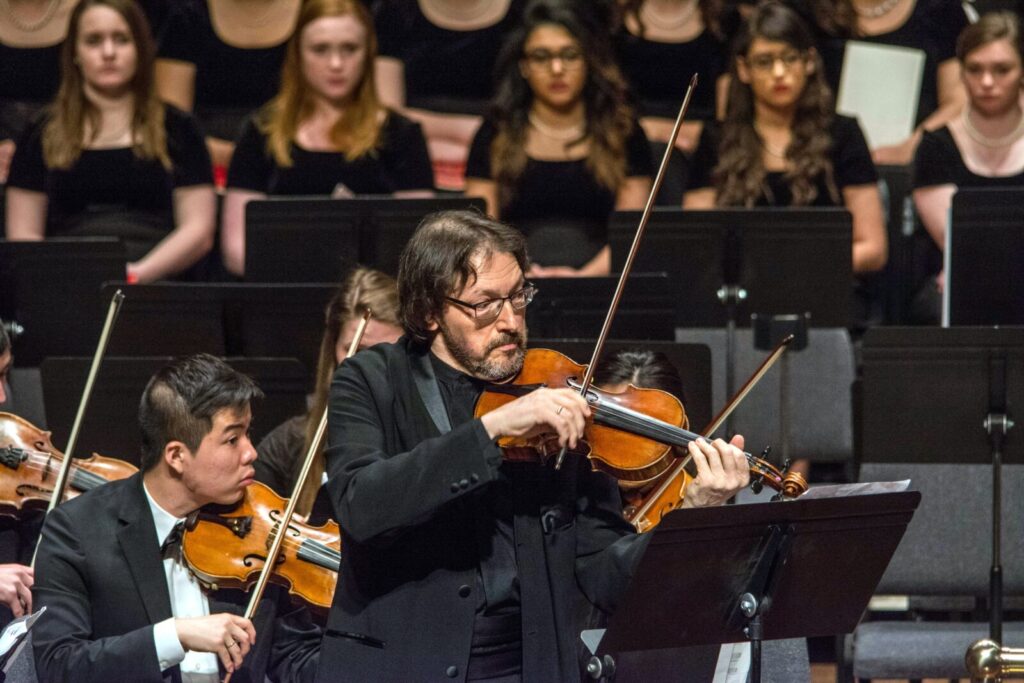
Mason appealed to reason with his deftly rendered solo passages even though the xylophone and drums kept playfully interrupting the discourse. Near the end, however, all the instruments seemed to agree to disagree and Mason, with his virtuosic reciprocity, got the last word. So what is love? No one knows for sure. Socrates said the beginning of wisdom comes from understanding the limits of our knowledge. This was Bernstein’s premise as well.
Before the Three Meditations from Mass, Nardolillo announced the presence of two people in the audience who knew Bernstein personally and that guest cellist Benjamin Karp (principal cellist for the Lexington Philharmonic) had played under Bernstein’s direction at Tanglewood. This knowledge intensified the presence of Bernstein’s spirit for the remainder of the program. As for the three Meditations for cello and orchestra, the third movement, Presto, best captured that spirit.
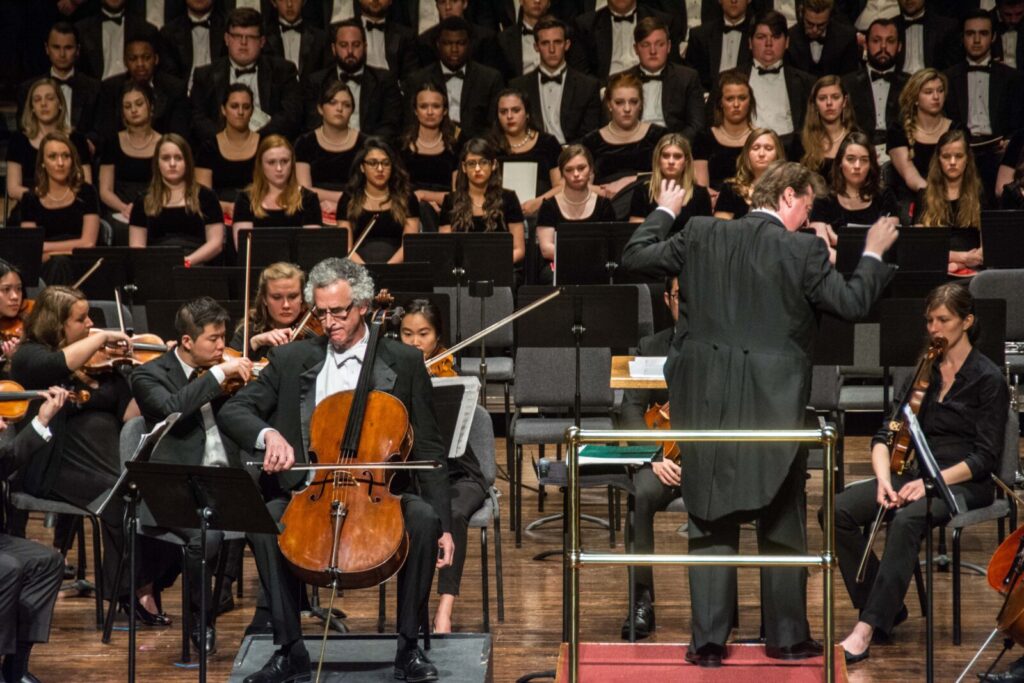
The introspective and ceremonial musical elements introduced in the first two movements of the Meditations culminated in the third and Karp unified them with great strength. His skillful phrasing, subtle dynamics and bold accents were spellbinding. Rhythmic drums paved the way for Karp’s solo ruminations and when the gong sounded, the strings followed his lead into a shamanistic fury of dance, highly spiritual and celebratory. Then Karp imposed a cathartic sense of calm with a wistful melody before he engaged us with amazingly intricate bowing like an oracle intermittently disseminating words of wisdom. The drum and the harp accompanied the fading tones of his good counsel and left me in reverie, wanting to hear more.
When Bernstein composed the Cinchester Psalms, he specified that the second Psalm be sung by either a boy soprano or a countertenor. The voice of a boy soprano imparts a sense of innocence and spiritual purity, and a well-trained countertenor can sing with unrestrained clarity within the vocal range of a contralto or mezzo soprano. His voice resonates a distinct timbre simply because it is a male voice singing outside the limits of its ordinary range.
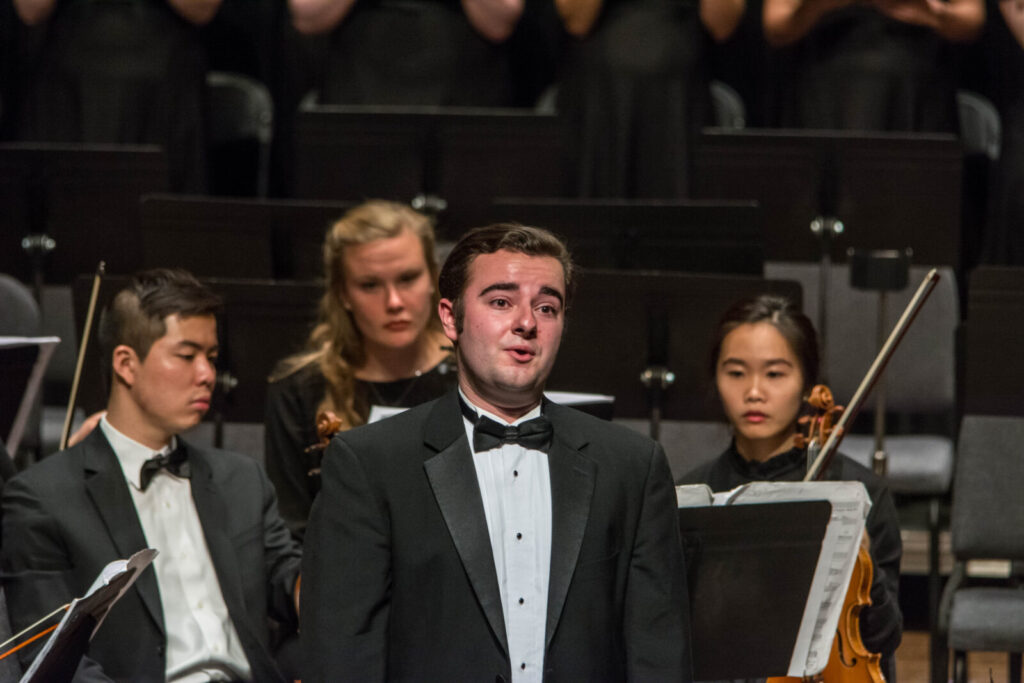
Although Bernstein’s Psalms are sung in Hebrew, we are all familiar with the biblical text. Jefferson Johnson conducted this demanding choral work as the combined choruses admirably rose to the occasion. The first Psalm calls for us to live joyfully; the third pleads for us to live in unity; the second, bridging the first and third, encourages us to travel through life with faith and courage. And countertenor Joseph Kingsbury delivered this Psalm with mesmerizing articulation, tonality, and agility: “The Lord is my shepherd, I shall not want.â€
The second half of the program offered much lighter fare and focused on Bernstein’s compositions for theater, stage, and film which involved collaboration with with several lyricists, the two most notable being Stephen Sondheim and Stephen Schwartz. After Intermission, clarinetist Scott Wright, the UK Jazz Ensemble and conductor Miles Osland took to the stage with Bernstein’s Prelude (for the brass), Fugue (for the saxes), and Riffs (for everyone).
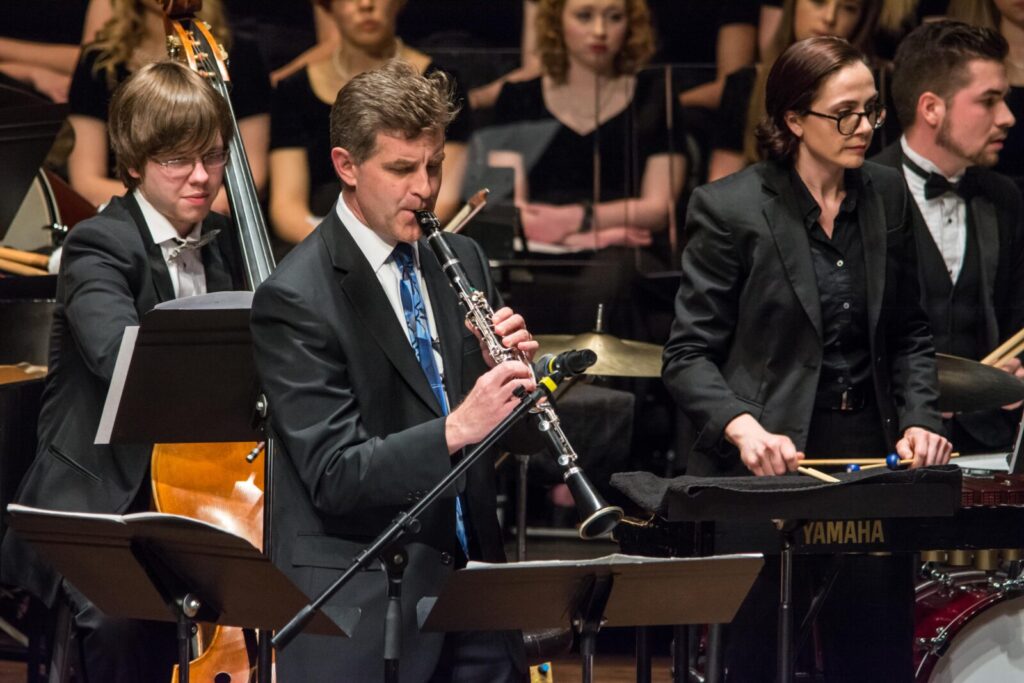
The Prelude was a jazzy, cool, and rhythmic exposition for the brass, drums, and bass. The mellow saxes teased each other unmercifully in the Fugue but were provided full support, be it point or counterpoint, in their individual and collective fugal moments. The Riffs ensued when Scott Wright (Professor of Clarinet at UK) took the lead with the big band sound as he masterfully interacted with everyone, fully engulfing the call-response format near the end that garnered the well-deserved acknowledgement he received from the ensemble and audience alike. I felt as if I had just been to church while heeding the call of the wild.
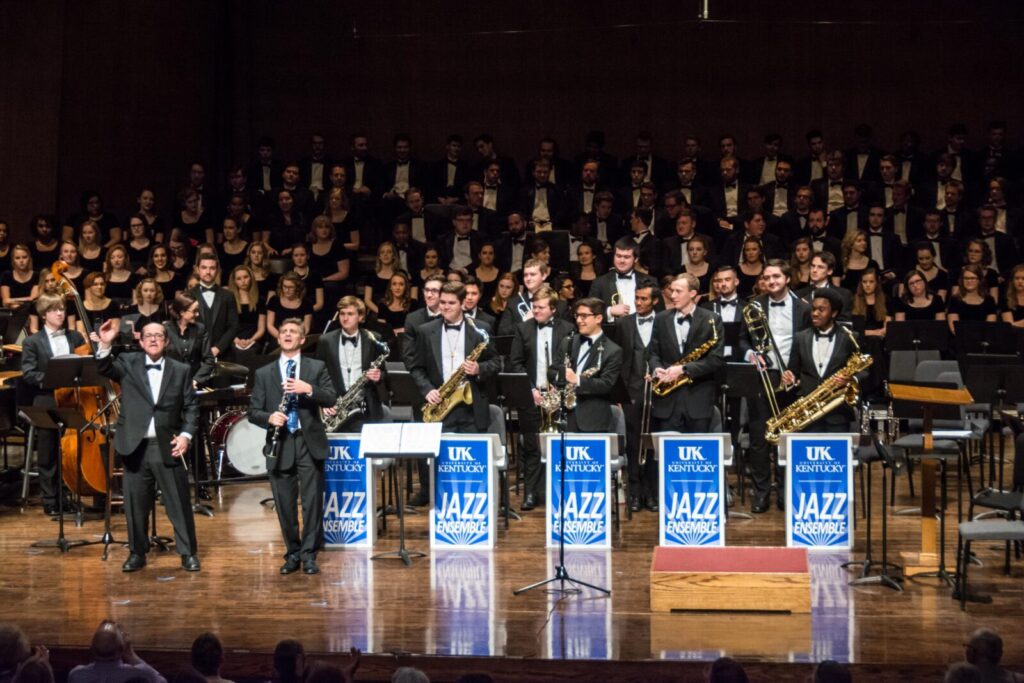
In the next segment, Nardolillo playfully interacted with the audience in a little practice for our participation in two numbers from the Symphonic Dances from West Side Story. Along with the chorus, and before the orchestra came back on stage (he wanted to surprise them), he had us snapping our fingers in the Prologue and yelling “Mambo†in the fourth movement by the same name. We followed through and did no harm—Bernstein would have approved.Â
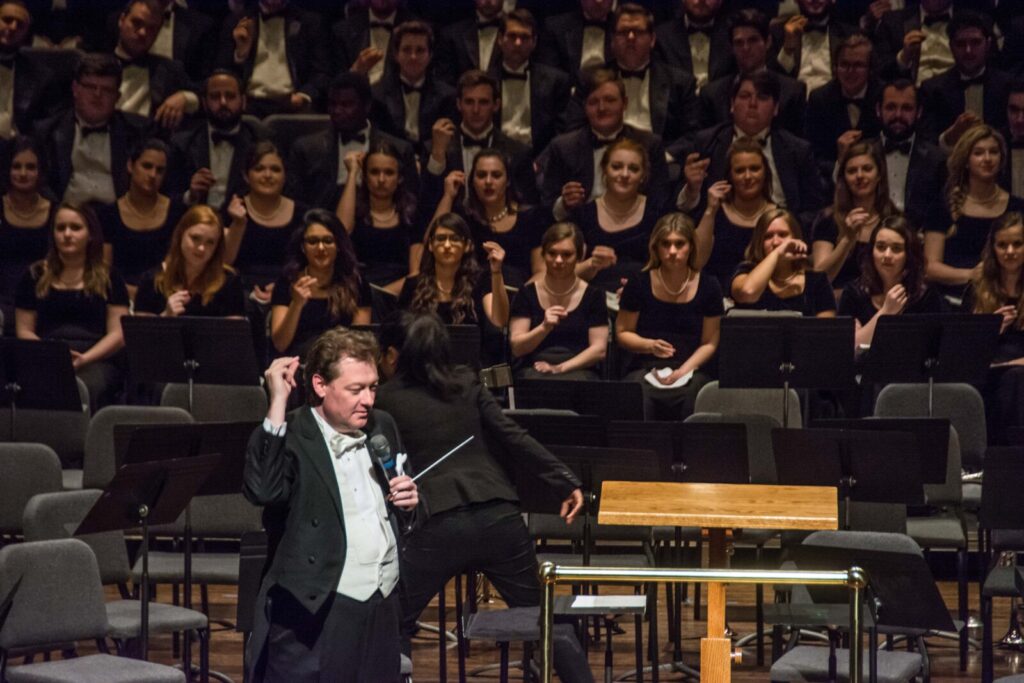
The orchestra, of course, brought West Side Story back to life with these eleven Symphonic Dances. It made you want to sing and dance. Fortunately, no one tried but it set the tone for What a Movie from Trouble in Tahiti with Logan Blackman conducting and mezzo soprano Audrey Adams as soloist; Three Dance Episodes from On the Town, and Glitter and be Gay from Candide with James Burton conducting, and soprano Jessica Bayne as soloist.
Audrey Adams and Jessica Bayne both were both spectacular in their respective roles. They teased, they flirted, and cajoled with voices and drama worthy of both Broadway and the Metropolitan Opera.
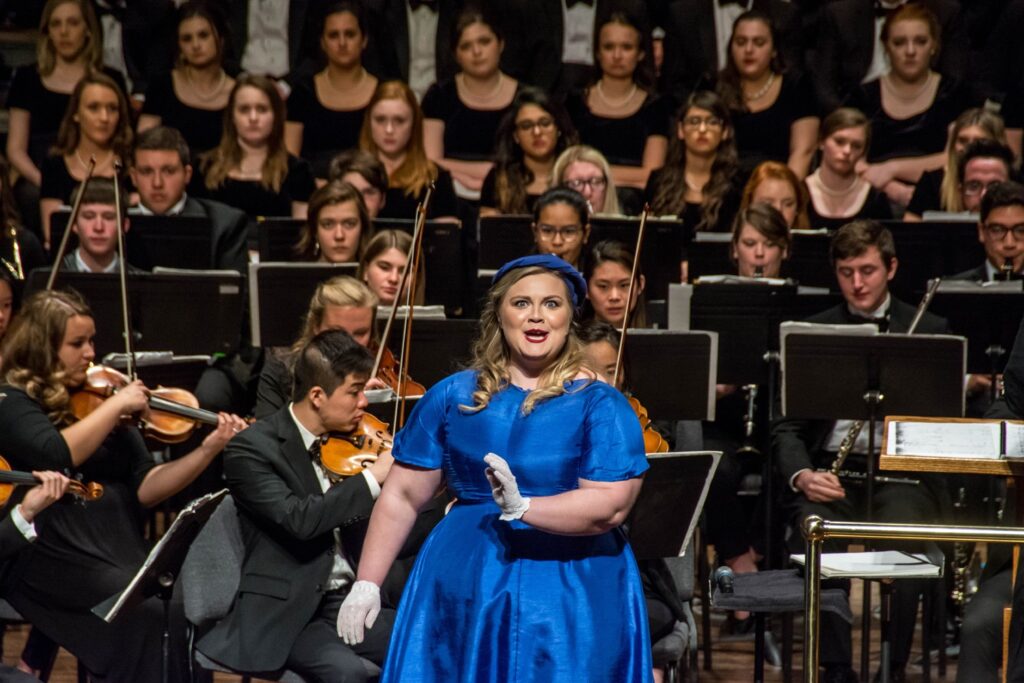
Maestro Nardolillo conducted the final number of the evening’s performance, the heart-rending chorale finale, Make Our Garden Grow from Candide, with soprano Jessica Bayne, tenor Michael Pandolfo and Mixed Chorus. This duet between Candide and Cunegonde (characters from Voltaire’s French satire, Candide: Or the Optimist) was Bernstein’s message to us all: And let us try, / Before we die, / To make some sense of life. / We’ll do the best we know . . . / And make our garden grow.
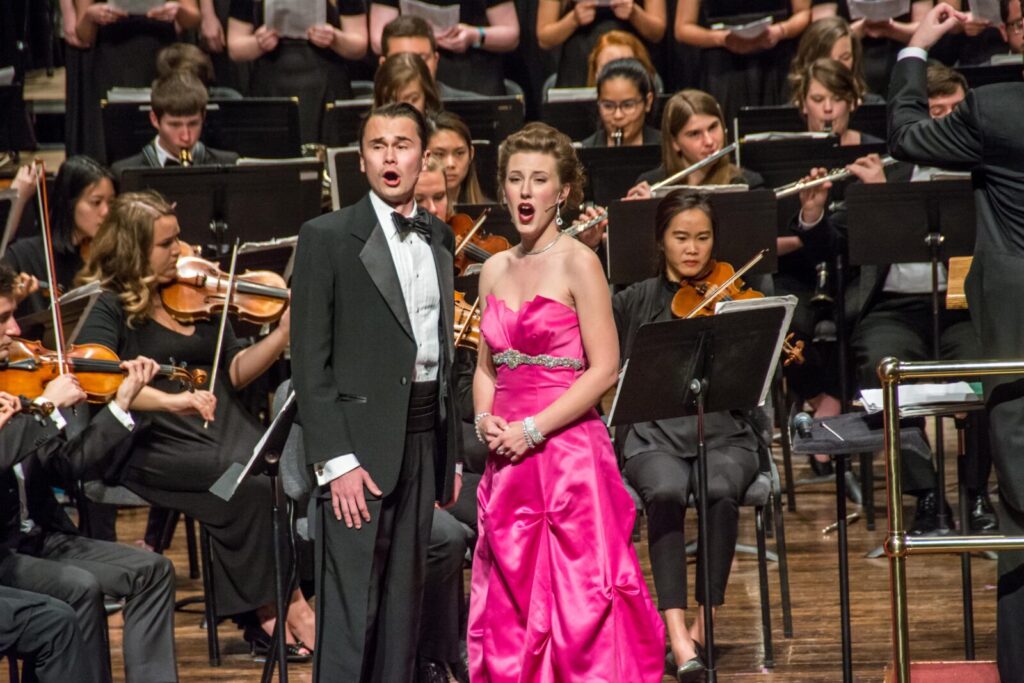
Pandolfo’s and Bayne’s voices were sublime as they shared Bernstein’s impassioned plea full of sincerity and optimism. And as the chorus joined in, magnifying Candide’s and Cunegonde’s emotions, Bernstein’s plan to unite us and give us a glimpse of our humanity will continue long past his 100th. It doesn’t matter that the clock stops ticking, eternal truths keep on truckin’.
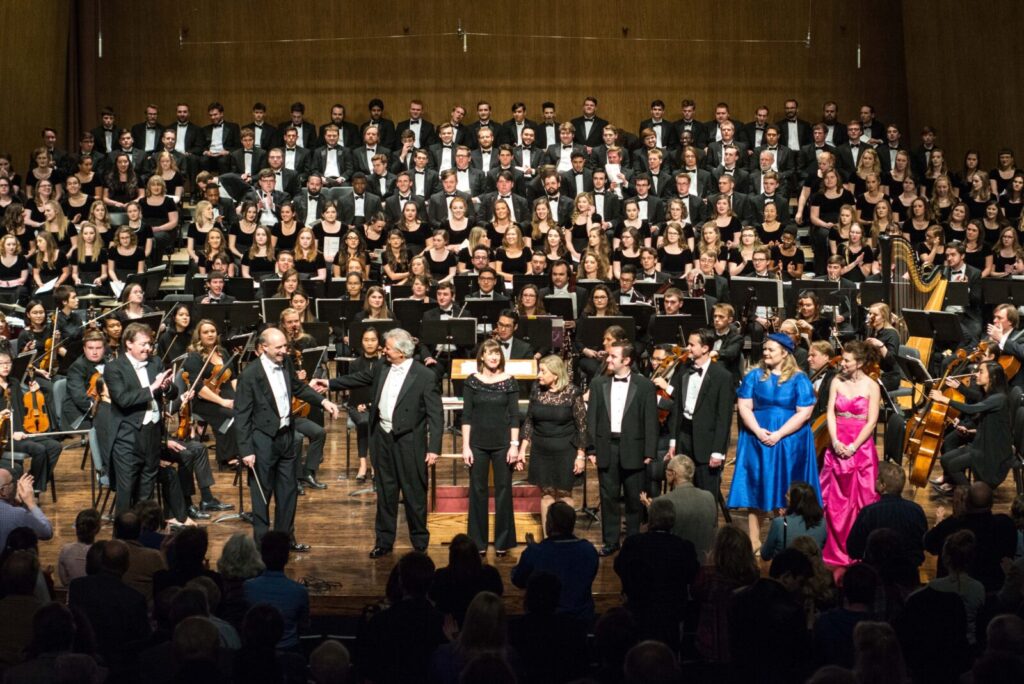
Bernstein had a strong affinity for young people and he would not have been disappointed in the exuberance displayed by everyone involved in this community-based collaborative centennial celebration of his music.
If you missed this magnificent Season Finale, you still have an opportunity to pay homage to Bernstein this fall. The Lexington Philharmonic begins its next season Opening Night: Bernstein & Gershwin on Saturday, October 20th at the Lexington Opera House (7:30 pm).
And remember, you can always get a bang for your buck with Maestro Nardolillo and the UKSO when they launch their 2018-2019 season program.
[aesop_video width=”content” align=”center” src=”youtube” id=”CDmRyOiyXrE” disable_for_mobile=”on” loop=”off” autoplay=”off” controls=”on” viewstart=”off” viewend=”off” revealfx=”off” overlay_revealfx=”off”]
Photos provided by Sally Horowitz Photography

